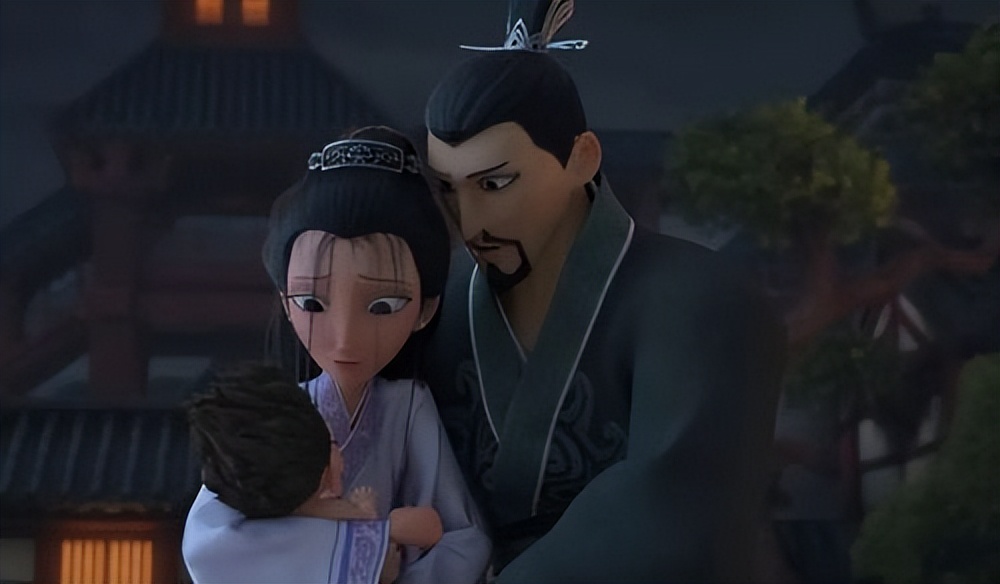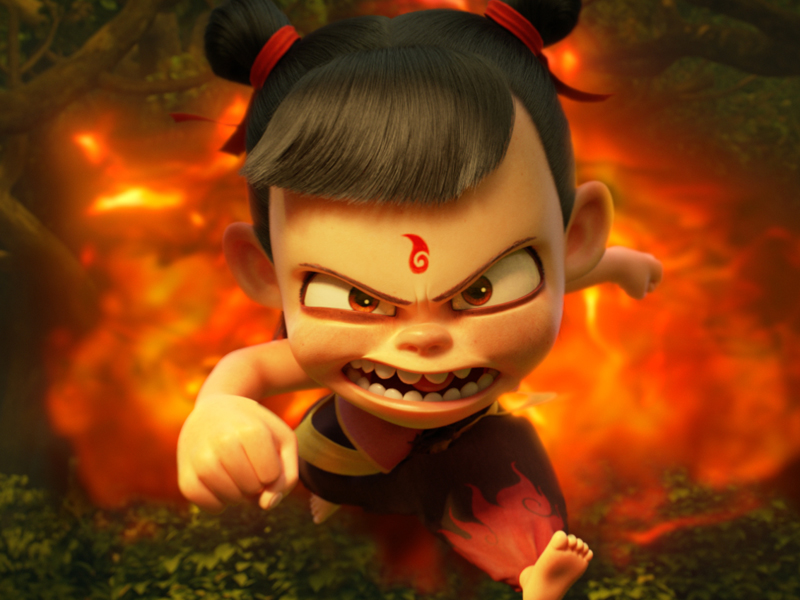

Unconditional love and healing
We As adults, we often carry invisible wounds from childhood. Maybe we grew up feeling like love was conditional—that it had to be earned by being perfect, quiet, or successful. These beliefs don’t just disappear; they linger, shaping how we see ourselves and how we react to the world. That scene reminded me of the importance of looking inward and offering our younger selves the love and acceptance they might not have received.
The article explores the concept of the inner child—our younger self that holds onto childhood joys, fears, and unmet needs. It explains how experiences of conditional love in childhood, such as feeling the need to be “perfect” to earn love, can leave emotional scars that shape our adult lives. These scars might manifest as self-doubt, sensitivity to criticism, or the need to people-please.
Why did NeZha Mother’s Hug Touches Every Heart
You remember that scene in Ne Zha 2 where his mother, despite being pierced by thorns, holds him tightly and whispers her final words of love? Children might cry at the raw power of unconditional parental love, but why do adults—perhaps even you—feel deeply touched by this moment?
The answer is simple: Every adult was once a child who yearned to be accepted.
Think back to your childhood. Maybe you felt you had to earn love by being “good”—getting perfect grades, staying quiet, or hiding your messy emotions. Phrases like “I’ll be proud of you if…” or “Why can’t you be more like…?” might have made you wonder: “Do they love me, or just the version of me they want?” That’s conditional love—and it may leave enduring invisible scars.
Now imagine Ne Zha’s mother saying, “I love you exactly as you are.” No demands. No fixes. Just ‘you matter’. For adults, this moment isn’t just about a character—it’s about healing the inner child within us all.
.

Your Inner Child: The Wounded Part of You That Still Whispers
Your “inner child” is the part of you holding childhood joys, fears, and unmet needs. When life feels heavy, it’s often that younger self asking: “Am I enough? Do I deserve love?”
Let’s break it down:
– Ever felt instant shame over a tiny mistake? That’s your inner child reacting, remembering times you were scolded for spilling milk or failing a test.
– Do compliments make you uncomfortable? Your inner child might have learned to shrink to avoid disappointment.
The scene with Ne Zha’s mother speaks
The Science Behind the Tears
Psychologist Carl Jung first called this the “eternal child” archetype—a part of our psyche carrying childhood memories and beliefs. Later, Dr. W. Hugh Missildine, in his 1963 book ‘Your Inner Child of the Past’, argued: “The inner child isn’t a metaphor—it’s a real emotional pattern wired into our brains.”
Modern brain scans show that when we’re emotionally triggered (like feeling rage or anxiety), the brain regions activated mirror those of a child’s (Abbass, 2002). So even if your adult self knows “This isn’t a big deal,” your inner child still reacts like it’s life-or-death.
Signs Your Inner Child Is Hurting (Whitfield, 1987)
Healing the Inner Child
Step 1 : Reconnect with Your Younger Self
Try this exercise:
If you’re overwhelmed, picture your 7-year-old self and say, “I am here, I see you. It’s OK to feel scared. I’ve got you now, and I am here for you no matter what happens.”
– Find a childhood photo. Write a letter to that child:
Dear [Your Name],
I know you felt [describe a painful memory].
You must have been so [scared/lonely/hurt].
I want you to know: It wasn’t your fault. You’re enough.
From now on, I’ll [protect/listen to/love] you.”
Research demonstrated that visualizing this dialogue activates the brain’s rational prefrontal cortex, helping heal emotional wounds (van der Kolk, 2014).
Step 2: Rewrite the Script of Love
Rewrite the old toxic script with new loving truths
| Old Story | New Story |
| I must be perfect to be loved | I am worthy as I am |
| Vulnerability is weakness | My feelings deserve to be heard |
| Others matter more than me | My needs are valid too |
Step 3 : Reparent Your Inner Child
“Healing means giving your inner child what they never received.”
- Safety: Place a hand on your heart and whisper, “I’m here. You’re safe.”
- Permission to fail: Mess up? Say, “It’s okay. Let’s learn from this and try again.”
- Boundaries: Say “no” to energy drainers. Tell your inner child: “You can just say NO, I stand by you.”
Why This Matters beyond Yourself
Healing your inner child isn’t about blaming parents or dwelling on the past. It’s about breaking cycles. Psychologist John Bradshaw put it best: “We can’t give what we never received.” If you grew up believing love was conditional, you might unintentionally pass that pain to your children. And that could possibly be happening to your parents too, or your grandparents….. You can break this intergenerational pattern now!
Hence, when you start saying to your inner child:
“Cry. I’ll stay.”
“You’re enough, just as you are.”
—you’re not just healing yourself. Neuroscience shows parents’ emotional patterns pass to kids via “mirror neurons” (Rizzolatti, 2004). When children see you embrace your flaws, they learn: “My true self is lovable.”
Parenting isn’t about raising “perfect” kids. It’s about becoming fertile soil where they can grow freely and flourish in their own way.
When you let your inner child breathe, you instinctively know:
– A tantrum isn’t defiance—it’s a plea for understanding.
– Failure isn’t shameful—it’s a chance to say, “I’ve got you.”
– Being “different” isn’t wrong—it’s their unique light.
Lastly
FAQ
Q1: Does focusing on my inner child make me weak?
A: No! Research shows embracing vulnerability builds resilience (Brown, 2010). Suppressing emotions drains energy; acknowledging them sets you free.
Q2: Do I need therapy?
– For mild wounds: Books or meditation can help (try Bradshaw’s *Homecoming*).
– For deep trauma: Seek a therapist specializing in inner child work or trauma.
Q3: How long does healing take?
Brain changes need 3-6 months of consistent practice (Doidge, 2007). But every kind word to your inner child is progress.
Final Thought: Love Yourself, Transform Generation
The final hug in ‘Ne Zha 2’ isn’t just a movie moment—it’s a metaphor for the choice we all face: Will we let old wounds define us, or turn pain into compassion?
As you learn to hold your inner child with care and gentleness, you rewrite not just your story, but your family’s legacy. Like Ne Zha’s mother, you become proof that love—thorny and imperfect—can end cycles of hurt.
So next time tears rise, ask:
“What does my inner child need to hear today?”
Maybe it’s simply:
“You’ve always deserved this love.”
